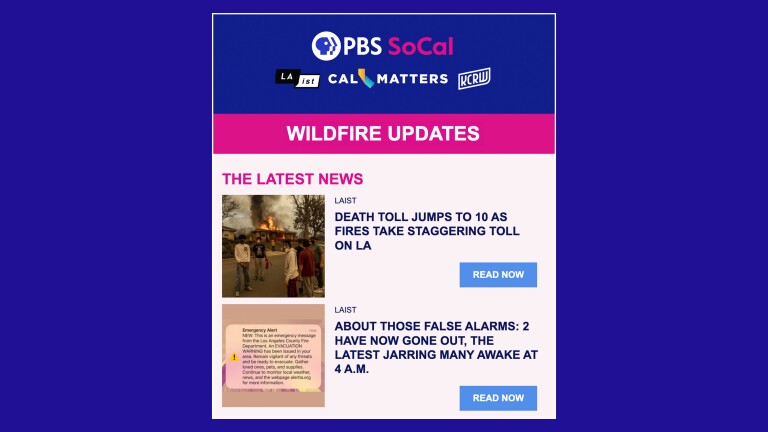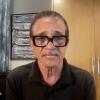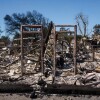Rebuilding the Rhythms of Altadena’s Village

On any given Saturday afternoon in Altadena, California, you would have likely heard the synchronized cadence of djembe drums emanating from the upper reaches of Lake Avenue. The Chukwurah family established Rhythms of the Village, a retail hub and learning space for African culture and art in 2013, on the western flank of north Lake, Altadena’s main thoroughfare. The store’s signature Saturday drum circle workshops filled the air with sounds perfectly symbolizing the store’s name.
“The drum is a symbol of the heart beating,” says Emeka Chukwurah, and when “people would hear those drums it would give them a sense of the pulse of Altadena, that we were alive and well.”
Like thousands of other structures consumed by the 2025 Eaton Fire, Rhythms of the Village burned down when hurricane-force winds, fueled by climate change, pushed a firestorm down the mountains into the heart of the beloved unincorporated Los Angeles County town. For two days, January 7 and 8, fires burned relentlessly through Altadena, erasing history and culture, homes and businesses.
Baba Onochie, an artist and storyteller, who calls North Pasadena and Altadena home and teaches African language and history at California State University of Los Angeles, is the inspiration behind Rhythms of the Village. He came to the United States from Nigeria in 1969 as bass player for the legendary musician Fela Kuti and stayed in the U.S. to escape Nigeria’s civil war.
“People are coming to me, feeling more empathy for me than they do for themselves,” reflects the Nigerian elder, seated in the fruit-tree-filled back garden of his north Pasadena home, three miles southwest of the destroyed store.
Emeka Chukwurah speaks of his father with pride. “He's like the community elder. Everybody looks to him for that African wisdom, the ancestral wisdom.”

Carrying on his father’s legacy, the younger Chukwurah wears many hats. As co-owner of Rhythms of the Village, he ran the store, filling it with his tailored designer fashions and running his ODG (“Only Do Good”) label. He also managed its biannual community art festivals and the Rhythms of The Family band.
The store’s main function was, in Emeka Chukwurah’s words, “bringing people together, bringing all different people of all walks of life, different cultures together.” Altadena was the perfect home for Rhythms of the Village. “We love Altadena because of its diversity and his community,” says Chukwurah.
Although cultural exchange was critical, the store unabashedly centered African culture. Woven baskets from Ghana hung in the doorway enticing passersby to come inside, step onto the rattan flooring, touch the Kenyan carved masks, tap the Nigerian djembe drums, caress endless racks of handmade clothing in African prints, and finger the smooth cowrie shell jewelry. All that remains of the lovingly curated items is now ash.
“It was Tuesday night [January 7] when we saw the fire in the East,” says Chukwurah, who lives in Altadena and whose house is among the few still left standing in the town. By Wednesday, the store had already been lost, and, as the younger Chukwurah drove his family through the fires, south toward safety, all around them Altadena burned. Although it was daytime, Emeka recalls, “it looked like midnight…The smoke was so black and so thick.”
He returned soon after, feeling the need to bear witness. “I just wanted to see it as it once was…I saw things completely ablaze and I just kept circling and praying for it to stop… I could feel the heat in my car, I could feel the fire all around me.”
As wildfires impact our communities, your trusted public media organizations have come together to deliver free, reliable, and essential news and updates.

Climate change looms large for a small town at the whims of drought and deadly winds. “We praying this kind of devastation can open the eyes and hearts of man and we can grow to be more understanding that we must take care of the earth and preserve the earth, and that way it will take care of us,” says Chukwurah. “Because when we don't, there’s repercussions.”
Those repercussions have had a devastating impact on the Chukwurah family and its Altadena community. Rhythms of the Village’s entire inventory was lost to the Eaton Fire. “We had quite the extensive collection of art, African artifacts, things that were authentic to our tradition, to our culture,” explains Chukwurah. Also lost were musical instruments, original handmade clothing, and many of Baba Onochie’s original paintings. Chukwurah views his father’s art as his “legacy,” one that he had hoped to pass down to his son.
With regular music shows and twice-yearly outdoor community art festivals attracting dozens of local vendors and hundreds of Altadena attendees, the Chukwurah family’s endeavors became well-known and loved over the years — and the father-son team hope to renew those traditions in spite of the town’s decimation.
The younger Chukwurah, who was raised in Altadena, says, “everyone I grew up with lost their home” to the fires. He’s worried not only about how the store will rebuild but who its customers will be. “To come back into the village, I would need it to be a hundred percent rebuilt. I need to see everyone come back.”
Altadenans like him are deeply concerned about preserving the town’s diverse character. “It was a very rich Black culture here,” says Chukwurah. He fears “that greed and capitalism could lead to developers coming in and kicking us while we're down… and taking advantage of disaster.”
The elder Chukwurah is more optimistic. Baba Onochie sees the fire as “cleansing.”
“It's cleaning the neighborhood and all of us together can have a brand-new start.” He says he has “noticed that people are opening their hearts, they're giving, they are more caring, and that's a good thing.” Indeed, community donation hubs and mutual aid projects have spontaneously cropped up all across North Pasadena, rallying to aid displaced Altadena residents.
Perhaps Baba Onochie’s greatest gift to Altadena is the wisdom he calls “the African spirit,” or “communalism,” by which he means, “If you have, I have. If I have, you have.”
“Individualism creates selfishness, greed, competition, all of these things. But communalism [means] people work together.” And so, when tragedy hits, the Nigerian elder advises “a spirit of communalism [where] you look out for your neighbor naturally. And then you build back, you go back with your neighbor. We build back together.”
His eyes twinkling, he adds, “and we're going to have fun…because we'll see everything coming back brand new again.”


